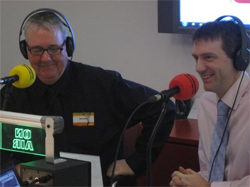
A curious title you might think. Well, these are curious times, as it would appear that life-sized posters, DVDs, pamphlets and YouTube videos are not getting the message across to young people. It also appears that not everything we are telling young people about how to behave on the internet is connecting with them. Why is this do you think? Might it have something to do with listening to older people? Is culture getting in the way of keeping our young people safe on the internet?
According to research published in 2012, parents worry the most about their children being groomed on the internet. Actually, this is the least likely thing to happen to them of all the present dangers that our young people are exposed to on the internet. But that doesn’t stop adults worrying about the risk. Whilst the risk is relatively low, the potential consequences are serious enough to be life-changing. There is risk in everything we do, and there is an inbuilt desire to protect our young. But are we really protecting our young as well as we can?

The term 'podcasting' was added to The New American Oxford Dictionary in 2005, just a few days before the incredibly popular Ricky Gervais podcasts hit the BBC. In the space of just a few years, Podcasting has changed the world. Stand by for the next big thing as Radio 2.0 arrives. It’s also being referred to as live podcasting - the broadcasting of a live audio stream - and often the content is live, too, but it doesn’t have to be. Radio 2.0 is also what you would call Internet radio and it's being enjoyed by more and more people every day. There are plenty of opportunities for educators, too, as Radio 2.0 is easy, cheap and doesn’t require complicated licences. And by cheap I also mean FREE.

A community-driven platform for showcasing the latest innovations and voices in schools
Pioneer House
North Road
Ellesmere Port
CH65 1AD
United Kingdom